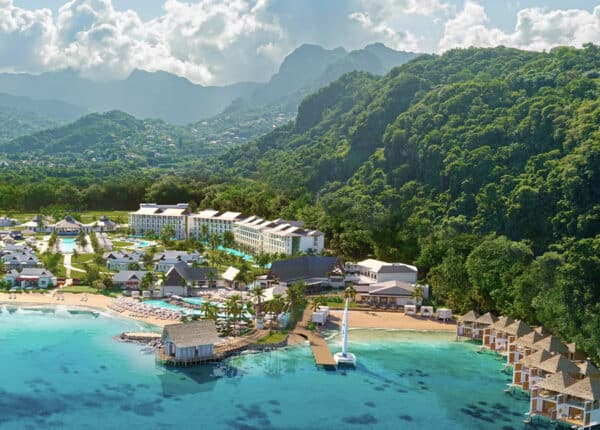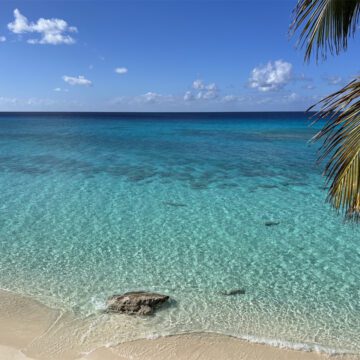The constitution question
By Ilio Durandis
CJ Contributor
How should Haiti proceed as the mandate of the current president comes to term on Feb. 7th and with no president-elect to assume power? Is the answer in the Haitian constitution, political consensus, through the people’s representatives in parliament, the international community intrusion, or a magical mixture of them all?
Over the last few weeks, as Haiti entangles itself in a deep political and constitutional crisis, many groups have come out their shell to propose their solutions to the current crisis.
Thus far, behind closed doors, the prevailing tendency is a negotiated political accord between the current president, members of parliament, a faction of the political opposition and the assistance of the international community mainly by the intermediary of the Organization of American States (OAS).
This process has explicitly bypassed the Haitian legal system or in that case the Cour de Cassation, Haiti’s Supreme Court, which could have helped the politicians and lawmakers make sense of the constitutional provisions regarding the upcoming presidential vacancy and set a legal precedence for future generation. Thus, the stakeholders run the risk of whatever compromised they derive to not be accepted or gained the legitimacy of the Haitian people, which is ultimately sovereign and supreme.
As of Feb. 7th, 2016, Haiti might find itself in a very delicate and unstable situation.
This situation presents, yet another huge dilemma for a country that has been on one leg as it tries to meet democratic norms.
Since the second round of the presidential elections scheduled for January 24th was called off, it became evident that an elected president would not be able to take command come February 7th; hence the process to assure the continuity of the executive and that of the state has officially entered murky water to say the least.
The political actors and major stakeholders are advancing their own arguments, agenda and propositions mostly trying to find a political consensus, a band-aid for a malignant tumor, and to avoid the unfortunate situation of a presidential vacuum, which becomes very real with each passing day.
This article seeks to address the issue or current crisis from a different angle: One that raises a few fundamental questions about the current state of Haitian democracy, its constitution, and the nation’s sovereignty.
The following quote by James Wilson could serve to emphasize the principal premise of this article: “There necessarily exists, in every government, a power from which there is no appeal, and which, for that reason, may be termed supreme, absolute, and uncontrollable….”1
Although the quote refers to government, in the context of this essay it is best to replace “government” with the “state.”
Haitian democracy, through the people’s representatives, ought to find and define that power which is supreme because our observation of past political impasse has led us to believe that the improvisation of political actors or the strategy to always resolve conflicting political issues with some sort of consensus, thus far has not created the condition for a stable democracy, but rather it is at the core of this looming power vacuum that awaits the Haitian people on or after February 7th.
In a democracy, the ultimate supremacy must remain with the people. Not only that Wilson believed this to be the case, so did many great political thinkers and philosophers. As Maurice Duverger once wrote, “it is the constitution that derives its authority from the constituent power and not the constituent power that derives its authority from the constitution.”2
The Haitian constitution of 1987 should have been one of the most sacred documents in Haitian politics. Unfortunately, it is a document that for many times has been poorly implemented or understood by the power holders.
In 2011, the amended version of the constitution was published and thus became the law of the land. To date, the yielding results have not been better.
The paralysis of the legislative in 2015, where only 10 members of the senate remained to the current crisis of not having an elected president to succeed the current president has not convinced anyone that Haitian leaders are eager to respect the norms of a democratic society. Haitian politicians have become too comfortable at ignoring the constitution at their own peril.
What is probably not being discussed or given much importance are the legality and the legitimacy of whoever is chosen to lead in the interim. What does the Haitian constitution say? Is there still room to have a transition government that can be considered legitimate and legal?
To answer these questions, we would have to do an analytical overview of the constitution and posit the ways by which Martelly’s replacement could benefit a minimum legitimacy.
We are in uncharted territory as far as political precedence and legal arguments are concerned. Haiti is not the first country to find itself in such circumstances. Lebanon is probably the best case example, where a presidential vacuum has happened, not once, but more than four times in their recent history. As we write this piece, Lebanon is currently without a president.3
The amended constitution has no provision that deals with the upcoming presidential vacancy. The president mandate expires, and no successful elections were organized to elect a successor. This is a situation that was unforeseen by the lawmakers, when they amended the 1987 constitution.
There are very limited options as to how Haiti could proceed if indeed the actors were serious about establishing a stable democracy.
The first and most logical step would have to be finding meaning in the constitution and the only way to get that in the absence of the constitutional council would have to be the input of the Cour de Cassation.
A simple legal question could be asked: Is Article 149 of the amended constitution applied in the current situation?
The justices of the Cour de Cassation, if accepted to hear the case, would have to give a legal and constitutional meaning to article 149, as it pertained to the upcoming presidential vacancy. Whatever the outcome the justices render would serve as a great precedence for similar crisis in the future.
In scholarly circle, this would make for an interesting debate. Is there a role for the Haiti court system to play in helping choose or select the next leader or is this something that should be left to the legislative branch and the political actors to decide?
Legitimacy in a democracy is of utmost importance, but some might argue that legality is as important, if not more important to create a stable democracy.
Legitimacy seeks to answer a fundamental question of governance, why should the government be obeyed?4 A political philosopher like Locke might argue that consent is necessary for legitimacy, which in its absence, there is no moral compulsion for citizens to obey.5
Where the court might give legal authority to a transition government, the legitimacy of such government must come from the people or their representatives in parliament.
As stated earlier, in a democracy, the people are the constituent, and therefore all the power from the constitution must derive from the constituent.
The Haitian people, if we are to believe that they are sovereign, must always be consulted, when important matter of state affairs is concerned. Whether or not, Haiti is about to face another transitional government, the voice of the Haitian people must not be silenced or ignored.
If the Haitian court system is not called upon to help get the country out of this constitutional quagmire, at the very least, the Haitian parliament must step up and assume its full authority in the sense of its duties as maker of the laws.
Then and only then would the court have to be involved in deciding whether or not any new law coming from parliament is constitutional.
It is understood that this process would be very time consuming, which obviously is not something Haiti has right now, but establishing the proper democratic norms are not something that should be taking lightly or ignored just for the sake of finding perilous consensus that can only lead the nation into further instability.
As of Feb. 7th, if current Haitian authorities are not able to come up with a solution that is both legal and legitimate, it might be time for the constituent to convene and restart this democratic exercise from scratch.
In the works of David Amiriles, Legality and Leitimacy, he presented the argument between the foundational principles of political and legal authority as it pertains to classical political philosophy. This seminal work even went further into presenting the case of Latin America as it relates to popular legitimacy and modernity.
Amiriles shared the case of Colombia in 1991, where the Colombians established a National Assembly, which had members from all walk of society who were popularly elected. However, the Colombian re-foundation project wanted more; they wanted a new constitution to achieve popular sovereignty over legal sovereignty.6
Today, Haiti needs its own re-foundation project. After 30 years of gambling with democracy and a constitution that could barely be implemented, Haiti is at a crossroad, where it needs to decide if it wants to be a sovereign state or to be a loosely protectorate of the international community.
Haitians, if we are to move from the labyrinth of mediocre politics, one that finds its strength in the decision or interference of international powers, ought to seriously believe that democracy is rooted in the respect of the law.
We can’t continue to demote the very institutions, whose roles are to safeguard our democracy, sovereignty and above all the unity of the people and the state.
The time is up to bring Haiti to political modernity and create a state based on popular sovereignty and not on foreign dependency.
The current crisis is an opportunity to allow the Haitian democratic institutions to decide the fate of the nation.
Citations:
1-Kalyvas, A 2005 Popular Sovereignty, Democracy, and the Constituent Power
2- Duverger, M 1948 “Légitimité des gouvernements de fait,” Revue du Droit Publique.
3-Vacance Presidentielle au Liban: Les précédents http://www.lorientlejour.com/article/926594/vacance-presidentielle-au-liban-les-precedents.html
4-Habermas, J 2001 “Constitutional Democracy: A Paradoxical Union of Contradictory Principles?,” Political Theory 29, no. 6.
5-Simmons A J 1979 Moral Principles and Political Obligations. Princeton University Press, Princeton, NJ
6- Amariles, D 2008 Legality and Legitimacy: The Political Philosophy of Popular Sovereignty in the New Latin American Constitutions.
Ilio Durandis, a Caribbean Journal contributor, studied political science at the University of Massachusetts-Lowell. He holds a masters in molecular biology. He currently serves as the Vice-Dean for the Medical Biology and Director of the Mckenna Biosciences programs at Universite Notre Dame Haiti- UDERS Hinche.






